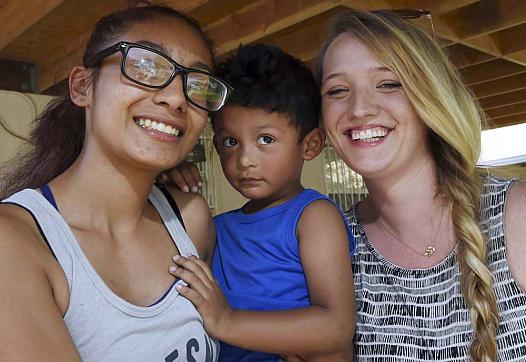
In recent months, Fresno School Board President Brooke Ashjian has launched a series of attacks on Fresno Bee reporter Mackenzie Mays over her reporting on the district's failure to provide basic sex ed to students.

In recent months, Fresno School Board President Brooke Ashjian has launched a series of attacks on Fresno Bee reporter Mackenzie Mays over her reporting on the district's failure to provide basic sex ed to students.

According to one recent report, Alabama ranks highest when in scores for American Indian children, while Maine is tops for Latinos. What’s going on here?

Why are so many young children in California not being screened for developmental issues, despite clear guidelines that they should be?

Mike Berens of The Chicago Tribune offers a master-level introduction to what can be achieved with an open mind and a deep committment to quantifying the stories he pursues.
![[Photo by Donnie Ray Jones via Flickr.]](/sites/default/files/styles/teaser_list_thumbnail_large/public/title_images/13074364353_24ac18724d_z.jpg?itok=iZ6TNTmF)
Does watching mom struggle at certain tasks carry benefits for her kids? A new study offers some intriguing evidence that children might work harder when parents do. It's an area of research "ripe for exploration," one expert says.

While scores of public agencies are working to develop resources and programs to address childhood trauma and toxic stress in their communities, San Joaquin County in California has been turning itself into a model for how to address the issue.

Stress is a powerful force. It can help us survive, but in some cases, lead to a lifetime of medical issues. A kid can only endure so many stressful traumatic experiences before it impacts his health.

This article and others forthcoming on this topic are being produced as part of a project for the University of Southern California Center for Health Journalism’s National Fellowship, in conjunction with the USC Annenberg School for Communication and Journalism.

Once again, Congress is considering a bill that would repeal the Affordable Care Act (ACA) and make major cuts to Medicaid. Next week, the Senate may vote on this latest repeal effort, led by Senators Lindsey Graham of South Carolina and Bill Cassidy of Louisiana.

A new study will be the first to examine if extra cash for poor mothers may lead to better outcomes for kids.